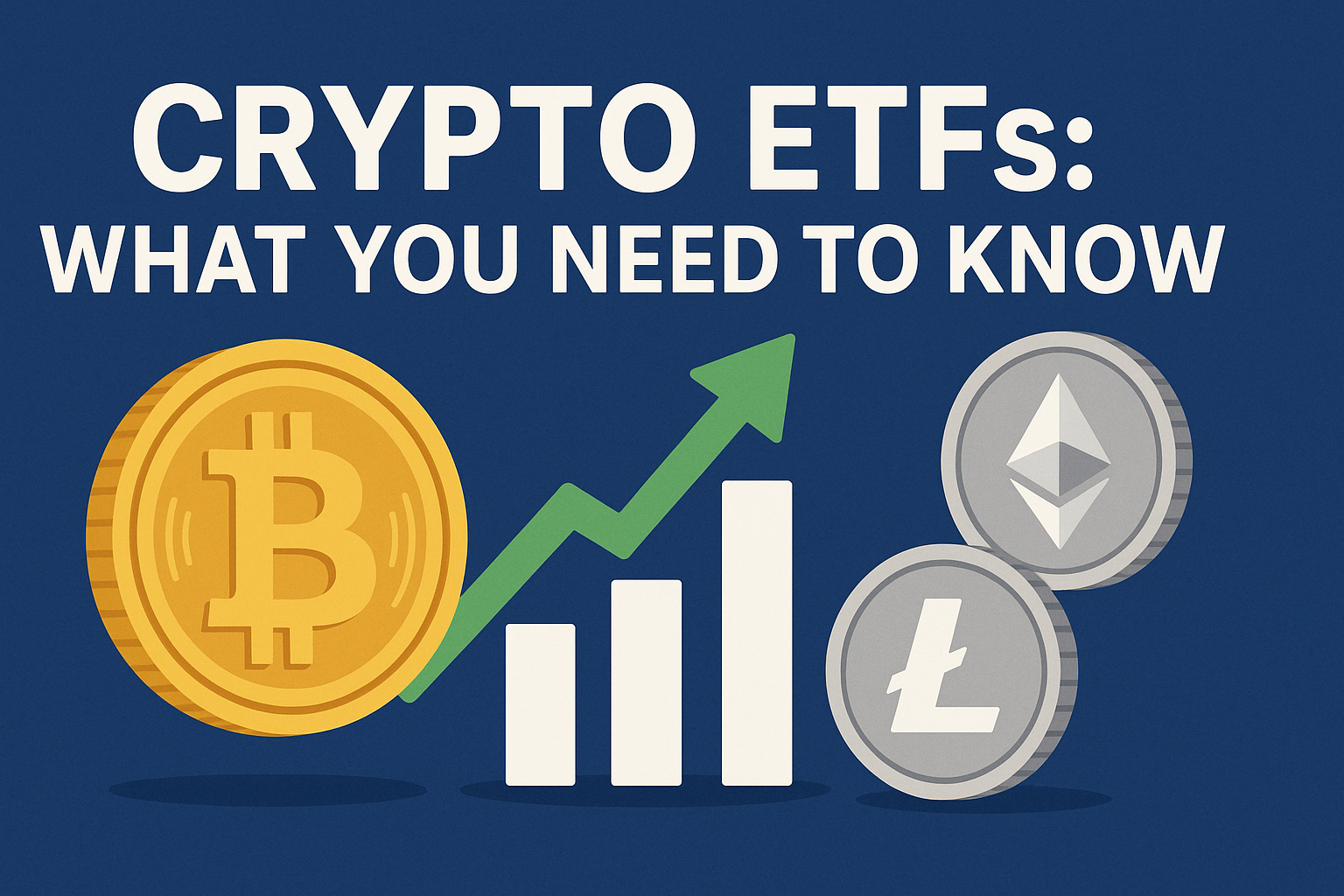Breaking News
Popular News




Enter your email address below and subscribe to our newsletter

The crypto world is entering a new phase of mainstream acceptance, and nothing proves it more than the rise of Crypto ETFs — regulated investment vehicles that allow exposure to digital assets without directly owning them.
At bit2050.com, we break down everything you need to know about Crypto ETFs in 2025, including how they work, the best types, and how they’re reshaping institutional investing.
A Crypto ETF (Exchange-Traded Fund) is a publicly traded investment product that tracks the price of cryptocurrencies like Bitcoin or Ethereum.
Instead of buying BTC yourself:
You buy ETF shares through a brokerage
The ETF holds the underlying crypto or derivatives
You get price exposure without managing wallets or private keys
✅ ETFs make crypto investing safer, easier, and compliant.
Spot ETFs hold actual crypto (e.g., BTC, ETH)
Futures ETFs track crypto prices via futures contracts
✅ Spot ETFs are more direct and usually lower risk for long-term investors.
After years of delay, 2024 saw approval of several Bitcoin Spot ETFs including:
BlackRock iShares Bitcoin Trust (IBIT)
Grayscale Bitcoin Trust (GBTC) converted to a spot ETF
Fidelity Wise Origin Bitcoin Fund
✅ Game-changer for institutional and retirement investors.
Ethereum Spot ETFs are awaiting approval, while ETH Futures ETFs are already live via:
VanEck Ethereum Strategy ETF
ProShares Ether Strategy ETF
✅ ETH ETFs will open doors for passive DeFi exposure.
Besides the U.S., crypto ETFs are already live in:
Canada (Purpose Bitcoin ETF)
Germany (21Shares Bitcoin ETP)
Australia (Global X BTC ETF)
✅ ETFs make crypto accessible to traditional investors worldwide.
In India and many countries:
ETFs are available through brokers like Zerodha, Groww, or Robinhood
No need for crypto wallets or exchanges
✅ Simple, compliant, and retirement-fund friendly.
Why investors prefer ETFs:
Regulated by SEBI, SEC, or local financial bodies
No risk of hacks or key loss
Institutional-grade custody (e.g., Coinbase, Fidelity)
✅ Ideal for risk-averse investors or retirement portfolios.
With ETFs:
Pension funds, hedge funds, and family offices can now legally invest in crypto
Trillions in capital may flow into Bitcoin and Ethereum
Market volatility may reduce over time
✅ ETFs are the gateway to mainstream crypto adoption.
A: Crypto ETFs let you invest without owning actual coins. No wallets, no keys — just traditional brokerage access.
A: Yes. They’re regulated and use trusted custodians like Coinbase Custody, Fidelity, or BitGo.
A: Absolutely. In many countries, ETFs can be added to 401(k), IRA, or NPS accounts.
A: No. ETFs are held in your stock or demat account, not on-chain.
A: Not yet. Indian investors can invest in foreign crypto ETFs via global investing platforms like INDmoney or Vested.
Crypto ETFs are the perfect bridge between traditional investing and the future of finance. They make it easier for investors of all levels to get exposure to Bitcoin, Ethereum, and other digital assets — without dealing with private keys, exchanges, or volatility risks.
Stay ahead of crypto investment trends with bit2050.com — your trusted source for blockchain finance, digital assets, and Web3 adoption.